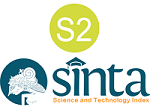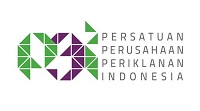Analysis of Ganjar Pranowo and Ridwan Kamil’s digital campaign on Twitter
Abstract
Digital campaigns are becoming a trend in influencing public opinion and expanding the reach of political messages. This research aims to analyze the effectiveness of the digital campaign strategy carried out by Ganjar Pranowo and Ridwan Kamil via the Twitter platform. The method used is qualitative research with a Qualitative Data Analysis Software (QDAS) approach via Nvivo 12 Plus. Data was collected using the N-Capture tool via the official Twitter accounts @ganjarpranowo and @ridwankamil during the period July 2022 to June 2023. The accounts @ganjarpranowo and @ridwankamil were chosen as research objects because they are both public figures who have great influence on social media. The analysis is carried out based on five main indicators: popularity, activity, responsiveness, visibility and interaction. The research results show that Ridwan Kamil is more effective in using Twitter as a digital campaign medium. The @ridwankamil account has more than 5.5 million followers, much more than the @ganjarpranowo account which has 3.3 million followers. Ridwan Kamil was also more active in using hashtags, such as #jabarjuara which was used 768 times, while Ganjar Pranowo only used the hashtag #lapakganjar 19 times. However, Ganjar Pranowo shows a higher level of activity with a higher number of tweets and a higher proportion of retweets. Both accounts show almost the same number of mentions on the @jokowi account, reflecting equal involvement in national issues. In conclusion, the @ridwankamil account is more effective than @ganjarpranowo in conducting digital campaigns via Twitter.
Keywords
Full Text:
PDFReferences
Anttiroiko, A.-V. (2015). Networks in Manuel Castells’ theory of the network society. Theoretical and Practical Research in the Economic Fields, 6(1), 67. https://doi.org/10.14505/tpref.v6.1(11).04
Baikuni & Setiawan, A. (2024). Strategi kampanye politik Joko Widodo-Ma’ruf Amin pada kontestasi pemilihan presiden tahun 2019. Sospol. 10(1), 1-14. https://doi.org/10.22219/jurnalsospol.v10i1.33201
Banurea, O. K. (2023). Efektivitas pengawasan kampanye berbasis digital (Pencegahan pelanggaran praktek kampanye berbasis digital). Mediation: Journal of Law, 2(1), 59–77. https://doi.org/10.51178/mjol.v2i1.1356
Bassil, N., & Kassem, N. (2021). The subtle dynamics of power struggles in tunisia: Local media since the arab uprisings. Media and Communication, 9(4), 286–296. https://doi.org/10.17645/mac.v9i4.4452
Boullosa, R. d F. & Peres, J. L. P. (2022). The democratic transformation of public policy through community activism in Brazil. Policy and Politics, 50(3), 341–361. https://doi.org/10.1332/030557321X16498834538186
Cahyono, Y. (2017). Analisis sentiment pada sosial media Twitter menggunakan Naїve Bayes Classifier dengan Feature Selection Particle Swarm Optimization dan Term Frequency. Jurnal Informatika Universitas Pamulang, 2(1), 14. https://doi.org/10.32493/informatika.v2i1.1500
Castells, M. (2013). The network society. The Network Society. https://doi.org/10.4324/9781315036946
Cooke, M. (2021). Changing hearts and minds: Cristina Lafont on democratic self-legislation. Philosophy and Social Criticism, 47(1), 58–61. https://doi.org/10.1177/0191453720974721
Danyliuk, M., Dmytryshyn, M., & Goran, T. (2021). Digitisation of Ukraine in terms of public electronic services’ distribution. Scientific Horizons, 24(7), 90–99. https://doi.org/10.48077/scihor.24(7).2021.90-99
Davidović, J. (2021). Unraveling the Black Mountain: Authoritarian Submission and Party Preference in Montenegro. Nationalities Papers, 49(4), 738–756. https://doi.org/10.1017/nps.2020.61
Felicia, R. L. (2018). Peran buzzer politik dalam aktivitas kampanye di media sosial Twitter. Koneksi, 2(2), 352–359.
Fikri, R., Purnomo, E. P., Pribadi, U., & Binti Mohammad, N. (2023). Technology readiness of e-government in the use of poverty data for social assistance in Indonesia. International Conference on Human-Computer Interaction, 195–202.
Eynde, G. V., Put, G. J., & Maddens, B. (2019). The coming of age of paid digital campaigning: Equalization or Normalization in the 2019 Belgian federal elections. Gunther Vanden Eynde, Gert-Jan Put and Bart Maddens. 1–21.
Gogolewska, A. (2021). Transformation of state security and intelligence services in poland – a job still unfinished. Connections, 20(1), 9–32. https://doi.org/10.11610/Connections.20.1.01
Hendriks, F. (2021). Unravelling the new plebiscitary democracy: Towards a research agenda. Government and Opposition, 56(4), 615–639. https://doi.org/10.1017/gov.2020.4
Housley, W., Webb, H., Williams, M., Procter, R., Edwards, A., Jirotka, M., Burnap, P., Stahl, B. C., Rana, O., & Williams, M. (2018). Interaction and transformation on social media: The case of Twitter campaigns. Social Media and Society, 4(1). https://doi.org/10.1177/2056305117750721
Izdihar, S., Asfianur, F., Nurmandi, A., & Mutiarin, D. (2022). Information services through social media in the Covid-19 pandemic era. 382–388.
Juditha, C. (2015). Political marketing dan media sosial (Studi political marketing capres RI 2014 melalui Facebook). Jurnal Studi Komunikasi Dan Media, 19(2), 225. https://doi.org/10.31445/jskm.2015.190207
Jung, J. H. (2021). Saving homeless children of war, making citizens for “Peace”: The politics of post-war rehabilitation in US-occupied Japan and beyond. Modern Asian Studies, 55(3), 801–832. https://doi.org/10.1017/S0026749X20000177
Khairiza, F., & Kusumasari, B. (2020). Analyzing political marketing in Indonesia: A palm oil digital campaign case study. Forest and Society, 4(2), 294–309. https://doi.org/10.24259/fs.v4i2.9576
Khan, D., & Akhtar, A. S. (2022). Transforming a praetorian polity: the political economy of democratization in Pakistan. Canadian Journal of Development Studies, 43(3), 320–338. https://doi.org/10.1080/02255189.2021.2012132
Kuhlmann, S., & Heuberger, M. (2023). Digital transformation going local: implementation, impacts and constraints from a German perspective. Public Money and Management, 43(2), 147–155. https://doi.org/10.1080/09540962.2021.1939584
Lassinantti, J., Ståhlbröst, A., & Runardotter, M. (2019). Relevant social groups for open data use and engagement. Government Information Quarterly, 36(1), 98–111. https://doi.org/10.1016/j.giq.2018.11.001
Moir, A. (2023). The Use of TikTok for political campaigning in Canada: the case of Jagmeet Singh. Social Media and Society, 9(1). https://doi.org/10.1177/20563051231157604
Moyo, L., & Osunkunle, O. O. (2022). The role of broadcast media in democratic transformation: The case of eNCA, SABC and Newsroom Afrika. Journal of African Films and Diaspora Studies, 5(3), 5–28. https://doi.org/10.31920/2516-2713/2022/5n4a1
Musgrove, N. (2015). The role and importance of history. Palgrave Studies in the History of Childhood, 147–158. https://doi.org/10.1057/9781137457554_13
Naryoso, A., Febriyani, A. R., & Kaloka, R. A. (2021). Digital campaign to reduce Covid-19 pandemic risk. Komunikator, 13(1), 1–14. https://doi.org/10.18196/jkm.131046
Nitzschner, P. (2023). On militant democracy’s institutional conservatism. Philosophy and Social Criticism. https://doi.org/10.1177/01914537221150462
Paryanto, Nurmandi, A., Qodir, Z., & Kurniawan, D. (2022). Eradicating terrorist networks on social media: Case studies of Indonesia. Lecture Notes in Networks and Systems, 381 LNNS, 433–442. https://doi.org/10.1007/978-3-030-93677-8_38
Purnomo, E. P., Loilatu, M. J., Nurmandi, A., Salahudin, Qodir, Z., Sihidi, I. T., & Lutfi, M. (2021). How public transportation use social media platform during Covid-19: Study on Jakarta public transportations’ Twitter accounts? Webology, 18(1), 1–19. https://doi.org/10.14704/WEB/V18I1/WEB18001
Putri, S. D., & Fithrah, D. S. (2018). Pengaruh online marketing campaign #Samyangchallenge terhadap consumer behavior digital natives pengguna Youtube Indonesia. PRofesi Humas: Jurnal Ilmiah Ilmu Hubungan Masyarakat, 1(2), 132. https://doi.org/10.24198/prh.v1i2.11460
Riski, W. N., Yohanes, ;, & Budiarsa, T. (2020). Komunikasi politik daring: Studi perbincangan politik di Twitter pada masa kampanye pemilihan presiden Indonesia 2019 online political communication: An overtime analysis of online political talk on Twitter during the 2019 Indonesian presidential election. Jurnal Komunikasi dan Media, 01(01), 1–17. https://doi.org/10.24167/jkm.v1i1.2845
Rossini, P., Sturm-Wikerson, H., & Johnson, T. J. (2021). A wall of incivility? Public discourse and immigration in the 2016 U.S. Primaries. Journal of Information Technology and Politics, 18(3), 243–257. https://doi.org/10.1080/19331681.2020.1858218
Rozalena, A. (2020). Creative content on the digital campaign tokopedia “seller story.” Jurnal Komunikasi: Malaysian Journal of Communication, 36(4), 157–171. https://doi.org/10.17576/JKMJC-2020-3604-10
Schlichthorst, M., King, K., Reifels, L., Phelps, A., & Pirkis, J. (2019). Using social media networks to engage men in conversations on masculinity and suicide: Content analysis of man up Facebook campaign data. Social Media and Society, 5(4). https://doi.org/10.1177/2056305119880019
Serra-Silva, S., & Santos, N. (2022a). The 2021 Portuguese presidential elections under extraordinary circumstances: Covid-19 and the rise of the radical right in Portugal. Mediterranean Politics. https://doi.org/10.1080/13629395.2022.2156713
Sespiani, K. A., Apilia, M., & Miftajanna, S. (2021). Studi literatur pelaksanaan crowdfunding oleh public figure melalui platform kitabisa.com. JKOMDIS: Jurnal Ilmu Komunikasi dan Media Sosial, 1(2), 84–96. https://doi.org/10.47233/jkomdis.v1i2.38
Shaban, H. (2020). The heavy burden of democracy: Where is salvation? Democracy between perspective and prohibited. Philosophy and Social Criticism, 46(5), 523–538. https://doi.org/10.1177/0191453720916905
Sinyai, C. (2019). Schools of democracy. Labor Studies Journal, 44(4), 373–381. https://doi.org/10.1177/0160449X19887246
Subekti, D., Nurmandi, A., & Mutiarin, D. (2022). Mapping publication trend of political parties campaign in social media: A bibliometric analysis. Journal of Political Marketing, 0(0), 1–18. https://doi.org/10.1080/15377857.2022.2104424
Sumartias, S., Pulubuhu, D. A. T., Sudarmono, S., Noorlistyo Adi, A., & Ratnasari, E. (2023). Democracy in the Indonesian digital public sphere: Social network analysis of Twitter users’ responses to the issue of nationalism knowledge test at the corruption eradication commission (KPK). Jurnal Ilmu Sosial dan Ilmu Politik, 26(3), 240. https://doi.org/10.22146/jsp.70896
Surahman, S. (2018). Public figure sebagai virtual opinion leader dan kepercayaan informasi masyarakat. Ichnographia Rustica, 158–191. https://doi.org/10.4324/9781315587714-6
Tromble, R. (2018). Thanks for (actually) responding! How citizen demand shapes politicians’ interactive practices on Twitter. New Media and Society, 20(2), 676–697. https://doi.org/10.1177/1461444816669158
Trumm, S., & Sudulich, L. (2022). A longitudinal study of online campaigning in the most digitally advanced society in the world. Journal of Elections, Public Opinion and Parties, 32(4), 960–979. https://doi.org/10.1080/17457289.2021.2009484
Vergeer, M., & Hermans, L. (2013). Campaigning on Twitter: Microblogging and Online Social Networking as Campaign Tools in the 2010 General Elections in the Netherlands. Journal of Computer-Mediated Communication, 18(4), 399–419. https://doi.org/10.1111/jcc4.12023
Weninggalih, L. & Fuady, M. E. (2021). Hubungan Kampanye Politik Calon Presiden 2019 melalui Media Sosial Instagram dengan Keputusan Memilih Mahasiswa Indonesia di Thailand. Jurnal Riset Public Relations, 1(1), 22–32. https://doi.org/10.29313/jrpr.v1i1.79
Williamson, A., Miller, L., & Fallon, F. (2010). Behind the digital campaign.
Williamson, B. (2019). Policy networks, performance metrics and platform markets: Charting the expanding data infrastructure of higher education. British Journal of Educational Technology, 50(6), 2794–2809. https://doi.org/10.1111/bjet.12849
Wolfs, W., & Veldhuis, J. J. (2023). Regulating social media through self-regulation: a process-tracing case study of the European Commission and Facebook. Political Research Exchange, 5(1). https://doi.org/10.1080/2474736X.2023.2182696
Wulansari, I. (2014). Artikulasi komunikasi politik Ridwan Kamil dalam media sosial Twitter. Jurnal ULTIMA Comm, 6(2), 20–40. https://doi.org/10.31937/ultimacomm.v6i2.413
Yanti, U. D., Auli, M., Cahyanto, H., & Safaruddin, S. (2023). Pemanfaatan media sosial sebagai strategi membangun citra pada divisi humas PT.Semen Baturaja Tbk. Jurnal Komunikasi dan Budaya, 4(1), 11–25. https://doi.org/10.54895/jkb.v4i1.1928
Zahra, A. A., Purnomo, E. P., & Kasiwi, A. N. (2020). New democracy in digital era through social media and news online. Humaniora, 11(1), 13. https://doi.org/10.21512/humaniora.v11i1.6182
DOI: https://doi.org/10.24198/jmk.v9i1.55412
Refbacks
- There are currently no refbacks.
Copyright (c) 2024 The Author(s)

This work is licensed under a Creative Commons Attribution-NonCommercial-ShareAlike 4.0 International License.
Jurnal Manajemen Komunikasi Indexed by:
Jurnal Manajemen Komunikasi
Fakultas Ilmu Komunikasi, Universitas Padjadjaran
Postgraduate Building, 2nd Floor, Faculty of Communication Sciences, Padjadjaran University
Jl. Ir. Soekarno Km. 21, Jatinangor, West Java 45363, Indonesia
Phone: +6288229381552 (WhatsApp Only)
Phone: +62227796954
Fax: +62227794122
Email: jurnal.manajemen.komunikasi@unpad.ac.id

This work is licensed under a Creative Commons Attribution-NonCommercial-ShareAlike 4.0 International License.
Jurnal Manajemen Komunikasi Supervised by:












21.png)

